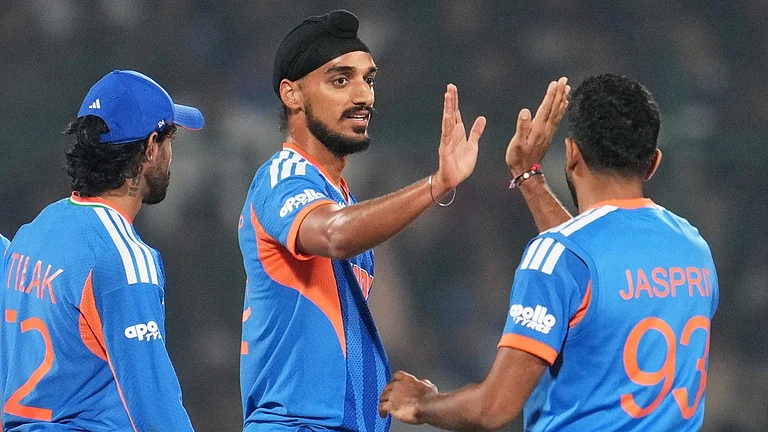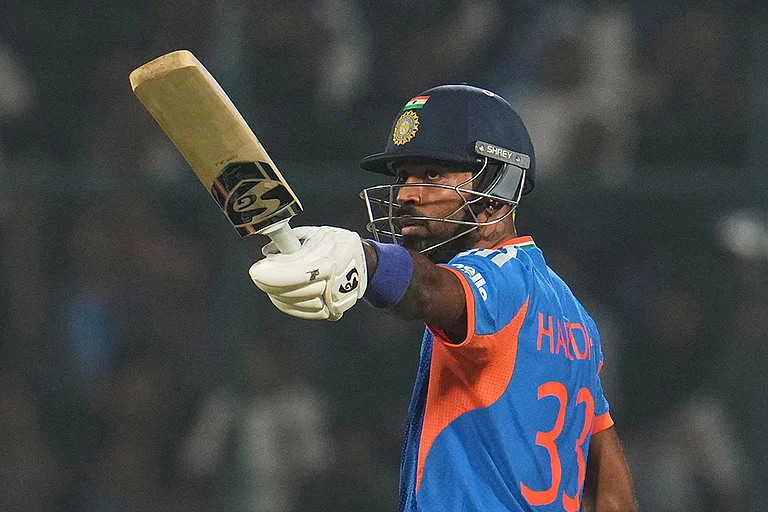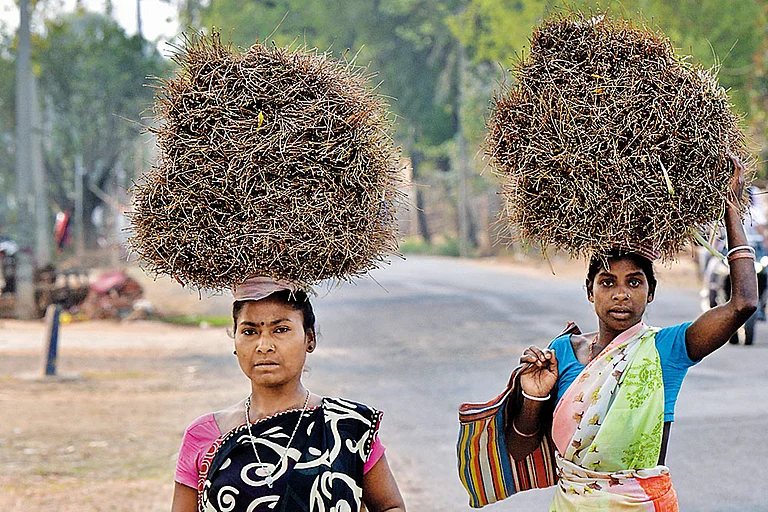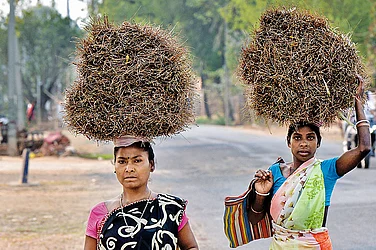External Affairs Minister S Jaishankar has discussed the worsening situation in Sudan with UN Secretary-General Antonio Guterres and underscored the need for “successful diplomacy,” which can lead to an early ceasefire and create the ground situation for the safety and welfare of people in the strife-torn African nation.
Jaishankar, who met Guterres at the UN headquarters here on Thursday, also discussed other issues, including India's presidency of the G20 and the Ukraine conflict, with the UN chief.
"Good to meet UN Secretary General @antonioguterres in New York today afternoon. Discussed the current developments in Sudan, G20 Presidency and Ukraine,” he tweeted.
“Focus understandably was on Sudan. India strongly supports efforts towards an early ceasefire, leading to creation of safe corridors. Will continue to work closely with the UN and other partners in this regard,” he said.
Violence in Sudan
The conflict is a direct result of a vicious power struggle within the country’s military leadership.
The clashes are between Sudan’s regular army and a paramilitary force called the Rapid Support Forces (RSF).
How India is affected?
More than 300 people, including an Indian national, have been killed since intense fighting erupted in the Sudanese capital, Khartoum and elsewhere in the country on Saturday.
India on Thursday said the situation in Sudan is "very tense" and is focusing on ensuring the safety and well-being of the Indian community, including working on contingency plans and possible evacuation.
New Delhi is keeping a close watch on the developments in Sudan besides being in touch with relevant countries, External Affairs Ministry Spokesperson Arindam Bagchi said at a media briefing and added that any evacuation plan will depend on the ground situation.
"We are in readiness of taking multiple options. There are contingency plans. We are in close touch with our teams on the ground. But it will all depend on how long there is a pause in the fighting or a ceasefire; where it is happening, what is available in terms of locations where we can safely take people away," he said in New Delhi.
Jaishankar is headed on a nine-day trip to Guyana, Panama, Colombia and the Dominican Republic beginning on Friday, his first visit as the external affairs minister to these Latin American countries and the Caribbean.
Before his trip to Latin America, he arrived in New York.
What did Jaishankar say?
He said while his trip to South America was planned quite a while ago, he "came here to the UN mainly because once the fighting started (in Sudan) on the 14th (of April), you could immediately see that this was very serious and a lot of people were trapped by the situation.”
“We knew that the UN itself has a large presence in Sudan. This will be the centre. Because at this moment, what is needed is diplomacy, successful diplomacy because it's only diplomacy which can create the ground situation for the safety and welfare of the people out there,” Jaishankar told a small group of journalists here after his meeting with Guterres.
Noting that he had a “very good meeting” with Guterres, Jaishankar said once the fighting in Sudan started out, “I felt that it was very important” that he met the UN Secretary-General Guterres.
"Most of our meeting was on the Sudan situation. We also of course discussed the G20 and we also spent some time on the Ukraine conflict. But essentially it was about the Sudan” situation, he said.
Jaishankar said that in Sudan, the UN is at “the heart of the efforts” to establish a ceasefire.
“And that is really key because at the moment, unless there is a ceasefire and unless there are corridors, it is not safe for people to really come out," he said.
“The UN is doing its bit talking to everybody. We of course have obviously very strong interest in the matter because so many Indians are there,” Jaishankar added.
Jaishankar said New Delhi is in touch with several countries and he has spoken to Foreign Minister of Saudi Arabia Faisal bin Farhan and UAE Foreign Minister Sheikh Abdullah bin Zayed Al Nahyan.
“We have been in touch with the Americans, I have also been in touch with my British counterpart,” he said.
Earlier on Thursday morning, he had a “long conversation” with the Egyptian foreign minister Sameh Shoukry for being Sudan’s neighbour and having a “strong interest and strong understanding."
“So, the focus is how do you get the diplomatic processes to yield the desired result. The desired result is a workable, on-the-ground observed ceasefire. And then to take the next step, which is how do you create corridors for movement, what are the options of movement, what are the assembly points,” Jaishankar said.
Meanwhile, the team in New Delhi is in “continuous touch" with the Indians in Sudan, advising them, “saying we know it's very difficult for everybody, but keep calm, don't take unnecessary risk. They'll have to wait for this to sort itself out, he said.
“I hope that the efforts, including that led by the Secretary General, will yield something very soon. But we will have to wait and see,” Jaishankar said.
Earlier on Thursday, Guterres had a meeting convened by the African Union on the “dramatic situation" in Sudan, bringing together the United Nations, the League of Arab States, IGAD [The Intergovernmental Authority on Development] and the European Union, as well as representatives from a number of countries that are deeply committed to solving the crisis.
“There was a strong consensus on condemning the ongoing fighting in Sudan and calling for a cessation of hostilities. As an immediate priority, I appeal for a ceasefire to take place for at least three days, marking the Eid al-Fitr celebrations, to allow civilians trapped in conflict zones to escape and to seek medical treatment, food and other essential supplies,” Guterres told reporters here.
Jaishankar said there have been earlier attempts at a ceasefire that did not hold.
“What he (UN SG) said to me was encouraging in respect of the people who are trapped right now because…as he said that it is more important than ever before that this ceasefire holds. We hope so too,” he added.
(With PTI Inputs)


























